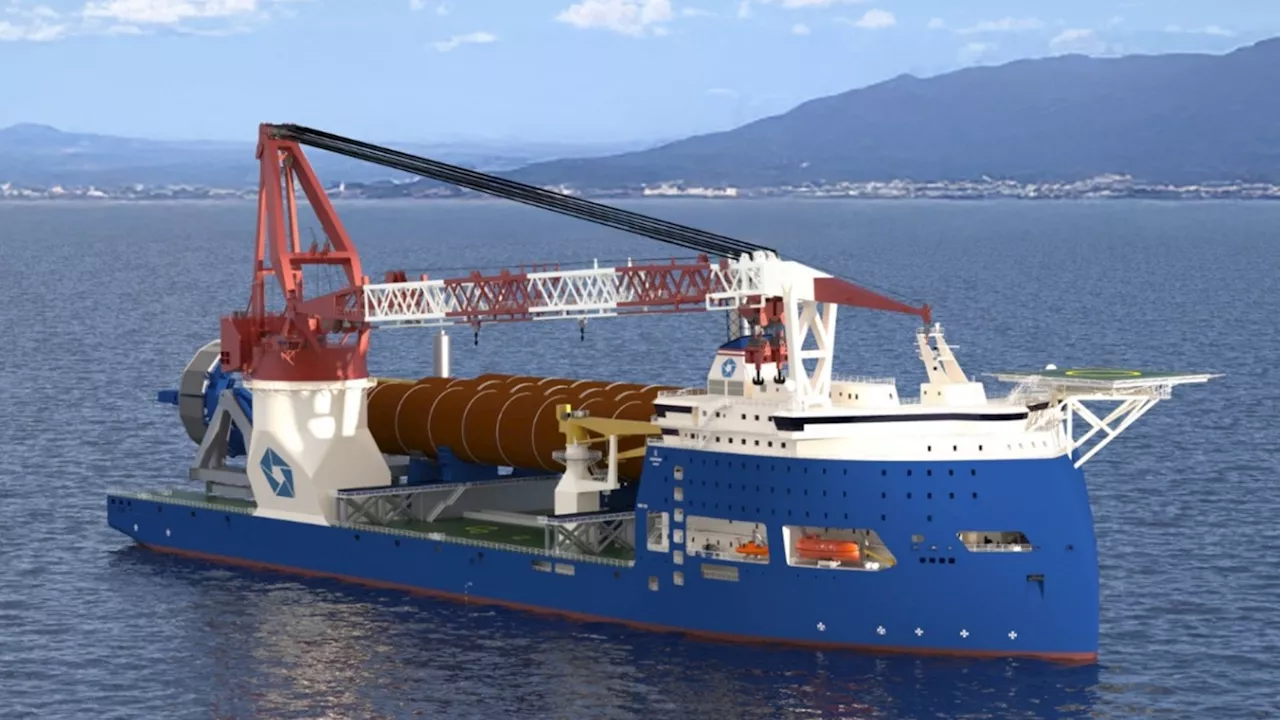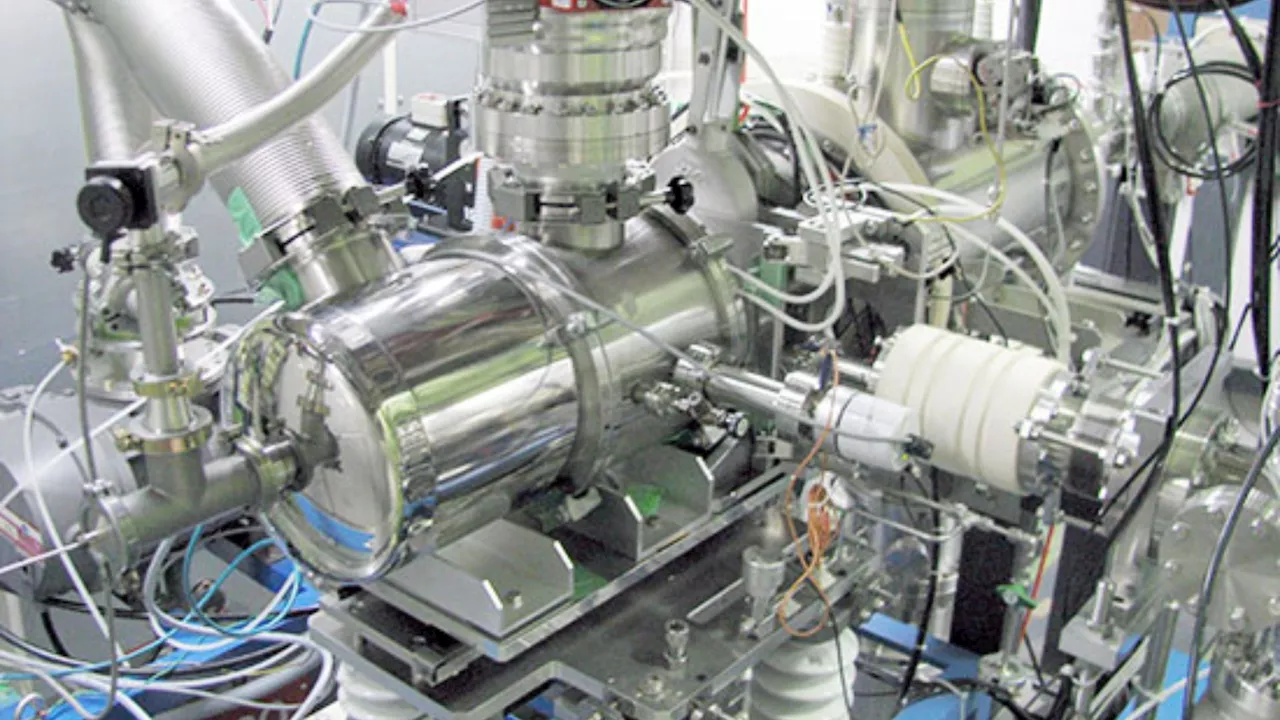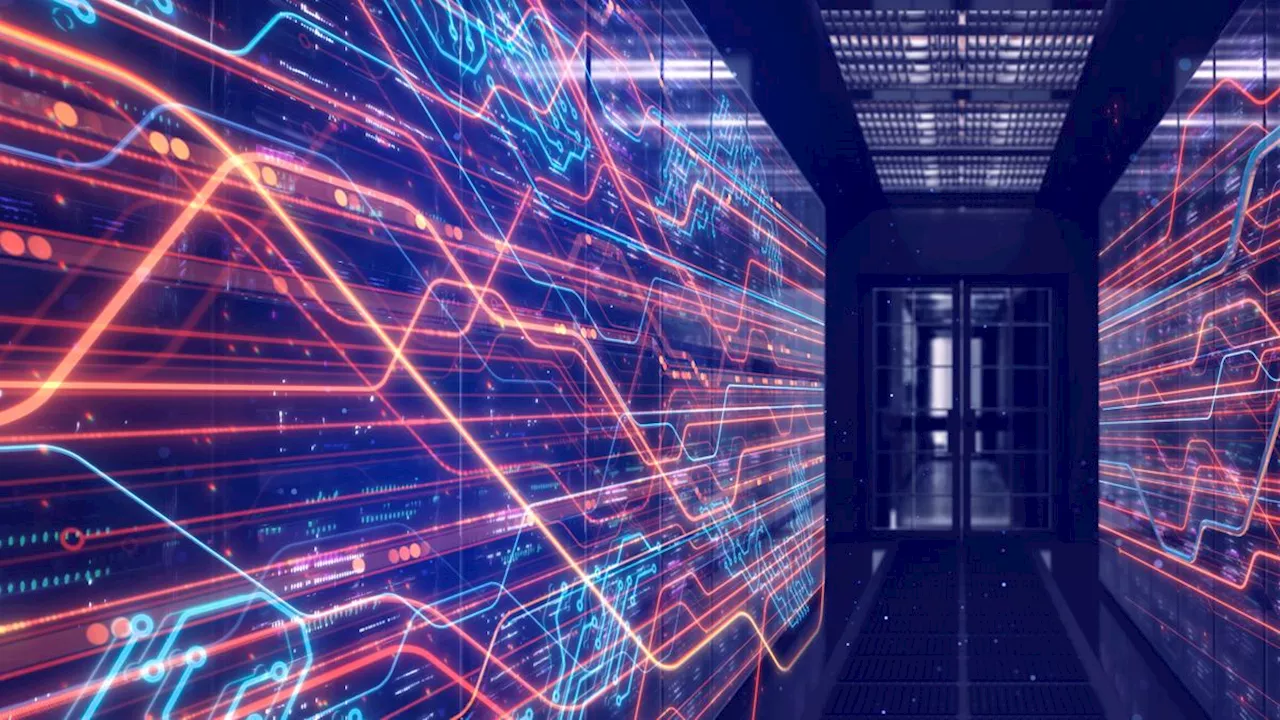Reimei, a hybrid quantum supercomputer developed by Quantinuum and housed at Riken, marks a significant milestone in quantum computing research. The machine utilizes trapped-ion qubits and will be primarily used for physics and chemistry research. Reimei's unique architecture and the potential for error correction techniques pave the way for the advancement of quantum computing.
Engineers in Japan have successfully switched on the world's first hybrid quantum supercomputer, named Reimei. Housed at the Riken scientific institute in Saitama, near Tokyo, this groundbreaking machine will primarily be utilized for physics and chemistry research, according to a joint statement released by Quantinuum , the manufacturer of Reimei, and Riken . \Reimei utilizes trapped-ion qubits, a distinct approach from the more common superconducting qubits.
This method involves isolating charged atoms, or ions, within an electromagnetic field. Engineers can then manipulate these ions to function as qubits, the fundamental building blocks of quantum information processing. Trapped ion qubits are known for their longer coherence times and the potential for stronger qubit-to-qubit connections, while superconducting qubits offer faster gate connections and easier fabrication on chips. \Quantum computers hold the promise of one day surpassing classical computers in computational power, potentially solving problems that would take today's most advanced machines millions of years to complete. While quantum computers are not yet large or reliable enough to fully realize this potential, advancements like Reimei represent significant strides towards that goal. Quantum computing research is rapidly progressing, with companies like Google demonstrating the capabilities of their quantum processors. Google's Sycamore quantum computer chip has recently been shown to outperform the fastest supercomputers in specific tasks, as indicated by a new study. Reimei's unique architecture physically moves qubits, which are inherently 'noisy' entities. To address this 'noise,' scientists are developing error-correction techniques to enhance the fidelity of qubits and enable the scaling of quantum computers. Reimei's physical ion qubits have been grouped to create 'logical qubits,' meaning a set of physical qubits that collectively store the same information in multiple locations. This distribution of information across different physical qubits acts as a safeguard against errors, as a failure in one qubit should not disrupt an ongoing calculation. While Reimei-Fugaku marks the first fully operational, integrated hybrid system, other companies have also explored similar architectures. IQM, for instance, integrated a 20-qubit quantum processor into a supercomputer in June 2024, although this system is still in the testing phase. IQM plans to further integrate a 54-qubit system by the latter half of 2025 and a 150-qubit chip in 2026.
Quantum Computing Supercomputer Japan Hybrid System Trapped-Ion Qubits Riken Quantinuum
United States Latest News, United States Headlines
Similar News:You can also read news stories similar to this one that we have collected from other news sources.
 Japan's Horror YouTube Star Uketsu Takes the World by StormUketsu, a Japanese YouTuber and horror author, has gained international fame for his creepy videos and bestselling mystery novels. His unique storytelling style, which combines images, diagrams, and text, has captivated audiences worldwide, especially younger generations. His debut book, 'Strange Pictures,' is being released in 30 countries, including the US, and has already sold 1.5 million copies globally.
Japan's Horror YouTube Star Uketsu Takes the World by StormUketsu, a Japanese YouTuber and horror author, has gained international fame for his creepy videos and bestselling mystery novels. His unique storytelling style, which combines images, diagrams, and text, has captivated audiences worldwide, especially younger generations. His debut book, 'Strange Pictures,' is being released in 30 countries, including the US, and has already sold 1.5 million copies globally.
Read more »
 Japan's YouTube Horror Star Uketsu Takes the World by StormUketsu, a Japanese YouTuber and horror author, is gaining international recognition for his unique blend of storytelling and visual horror. His debut book, 'Strange Pictures,' is set to release in the US and 30 other countries, following its massive success in Japan. Uketsu's signature style involves using creepy imagery and diagrams to create a chilling puzzle for his readers, who piece together the gruesome events step by step.
Japan's YouTube Horror Star Uketsu Takes the World by StormUketsu, a Japanese YouTuber and horror author, is gaining international recognition for his unique blend of storytelling and visual horror. His debut book, 'Strange Pictures,' is set to release in the US and 30 other countries, following its massive success in Japan. Uketsu's signature style involves using creepy imagery and diagrams to create a chilling puzzle for his readers, who piece together the gruesome events step by step.
Read more »
 Japan Takes Gold at the Pastry World CupJapan defended its title at the biennial Pastry World Cup, showcasing its culinary heritage and technical skills in a sweet showdown. Teams from around the world competed to create the best desserts, representing their countries through both flavors and design.
Japan Takes Gold at the Pastry World CupJapan defended its title at the biennial Pastry World Cup, showcasing its culinary heritage and technical skills in a sweet showdown. Teams from around the world competed to create the best desserts, representing their countries through both flavors and design.
Read more »
 Japan defeats France to win the Pastry World CupA lemon, pear, marigold and chocolate granita in the shape of a leaf and an apricot treat resembling a spinning top toy took top honors in the biennial contest which sees teams of chefs compete to produce the best desserts.
Japan defeats France to win the Pastry World CupA lemon, pear, marigold and chocolate granita in the shape of a leaf and an apricot treat resembling a spinning top toy took top honors in the biennial contest which sees teams of chefs compete to produce the best desserts.
Read more »
 World’s largest heavy-lift sea vessel with 5,000 ton crane being built in JapanSet to be the largest of their kind, Japan’s new heavy lift and cable laying vessels are meant to boost offshore wind projects.
World’s largest heavy-lift sea vessel with 5,000 ton crane being built in JapanSet to be the largest of their kind, Japan’s new heavy lift and cable laying vessels are meant to boost offshore wind projects.
Read more »
 Japan to Build World's First Hydrogen Production Facility Powered by Next-Gen Nuclear ReactorJapan is making strides in decarbonization by planning to construct the world's first hydrogen production facility fueled by a next-generation nuclear reactor. The Japan Atomic Energy Agency (JAEA) will utilize its advanced High Temperature Gas Cooled Reactor (HTGR) to produce hydrogen without carbon dioxide emissions. This project aims to harness the heat from the reactor to drive a chemical process that splits water into hydrogen and oxygen, offering a clean and sustainable method for hydrogen production.
Japan to Build World's First Hydrogen Production Facility Powered by Next-Gen Nuclear ReactorJapan is making strides in decarbonization by planning to construct the world's first hydrogen production facility fueled by a next-generation nuclear reactor. The Japan Atomic Energy Agency (JAEA) will utilize its advanced High Temperature Gas Cooled Reactor (HTGR) to produce hydrogen without carbon dioxide emissions. This project aims to harness the heat from the reactor to drive a chemical process that splits water into hydrogen and oxygen, offering a clean and sustainable method for hydrogen production.
Read more »
